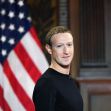Quick-to-rise social media app Parler touts itself as the alternative to Twitter in providing a platform for unrestricted “free speech.” Because of its lack of censorship of political views and fringe ideologies, the app has drawn users who have been kicked off of mainstream platforms such as Twitter and Facebook.
More often, these users tend to be extreme right-leaning conservatives who gather to share conspiracy theories such as QAnon and other far-right views. The draw of Parler is that unlike Twitter, users have the freedom to express their thoughts without being booted from the site for violating the app’s user guidelines. Although the app touts that it is a nonpartisan platform, Parler saw a surge in conservative users over the past year.
The app, which launched in the summer of 2018, has found itself in the center of controversy after tech giants including Amazon, Google, and Apple announced their removal of the app from their platforms after the Wednesday riot at the U.S. Capitol.
Over the weekend, Apple announced that it would be suspending the app from its App Store until the app modifies its standards regarding posts that threaten violence. “We have always supported diverse points of view being represented on the App Store, but there is no place on our platform for threats of violence and illegal activity,” the company said referring to statements made by Parler users leading up to the riots that rocked the Capitol grounds last week. “Parler has not taken adequate measures to address the proliferation of these threats to people’s safety. We have suspended Parler from the App Store until they resolve these issues.”
Apple's decision to remove Parler from its platform came a day after Google announced its suspension of the app for similar reasons on Friday. Google’s decision to silence Parler came on the heels of Twitter permanently banning Donald Trump from its platform. After temporarily disabling Trump's tweeting ability, Twitter announced Friday evening regarding Trump's account which boasted over 88 million followers, “We have permanently suspended the account due to the risk of further incitement of violence.”
Parler CEO John Matze has shared his blatant disagreement of his app being suspended from all three tech giants with several media outlets over the weekend. In a statement he shared through his app, Matze expresses, "This was a coordinated attack by the tech giants to kill competition in the market place. We were too successful too fast."
In another statement, Matze highlights his frustration with the decision by expressing, "Apparently they [Apple and Google] believe Parler is responsible for ALL user-generated content on Parler. Therefore by the same logic, Apple must be responsible for ALL actions taken by their phones. Every car bomb, every illegal cell phone conversation, every illegal crime committed on an iPhone, Apple must also be responsible for."
Influence of Private Companies on Political Climate Grows
The swift removal of the app from these major key players in the world of information has reduced Parler's existence to operating only through its website. Moreso, the move by these three tech giants highlights the overarching power that private media companies have as far as political influence, access to information, and the ability to share information goes.
Furthermore, the app’s removal highlights the exponential growth of private companies’ influence and the inability of the government to keep up with regulations. Apps like Parler and 4Chan have grown in popularity as socially acceptable platforms that offer fringe thinkers a place to share misinformation, conspiracy theories, and hate speech. Jonathan Morgan, the CEO of Yonder, an AI firm that tracks misinformation online, explains that online forums like Parler are breeding grounds for misinformation to spread, especially considering that many of the users feel a sense of safety in spreading their unconventional and at times hateful beliefs on such spaces. And with limited regulation, users have the ultimate outlet to express their freedom of speech.
Government vs. Private Companies: The Final Say on Censorship
The move to drop the app also brings up the question of who should hold the ultimate power of censorship. While Amazon, Apple, and Google maintain they cannot support an app that promotes violence, Parler shared with Vox that it sees itself as a “town square” and not a “publisher.” The Communication Decency Act Section 230 which was established nearly 30 years ago can be interpreted to support Parler's stance as the Act protects platforms from what a third party says or does on that site (think Twitter not being liable for a threatening tweet posted by a user).
While the Act has largely gone unchanged, President Trump pushed forth an executive order on May 28, 2020, addressing online censorship. The executive order states in part, "In a country that has long cherished the freedom of expression, we cannot allow a limited number of online platforms to hand pick the speech that Americans may access and convey on the internet. This practice is fundamentally un-American and anti-democratic. When large, powerful social media companies censor opinions with which they disagree, they exercise a dangerous power.”
While the executive order highlights the need to protect freedom of speech, the question remains, at what point does a private company like Apple, Amazon, and Google cross the threshold of holding the ultimate power in public censorship?






